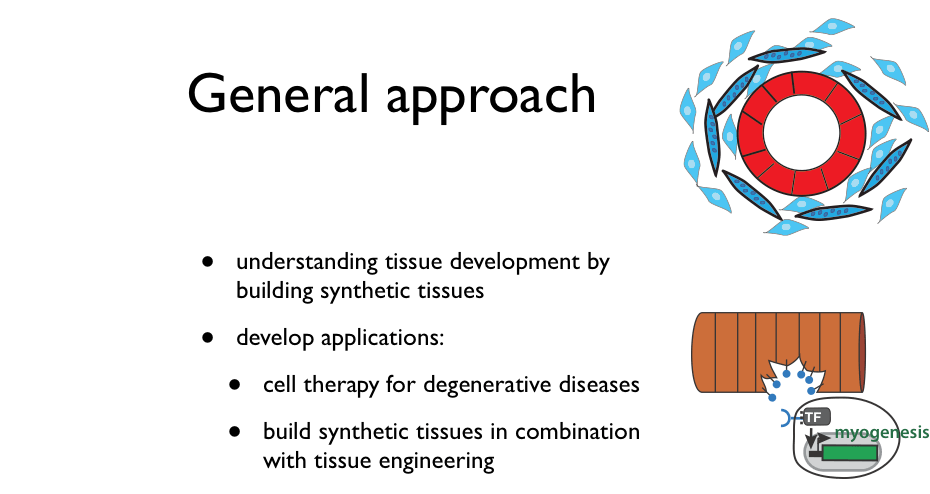We invent and use synthetic biology tools to control multicellular behaviors, with a special focus on stem cells and regenerative medicine applications.
We start from the realization that embryonic development is a technology for building tissues, based on genetically encoded networks of signaling and differentiation. We want to be able to master that technology to build designer, smart tissues, of user-defined structure and function.
We use synthetic biology tools including synthetic cell-cell communication pathways, synthetic transcription factors, etc., to engineer novel networks of interactions that support the formation of the desired tissue. We roughly divide what we do into three areas, often overlapping, that conceptually describe three ways of controlling tissue formation: 1. engineering cell interactions that enable morphogenesis in naive cellular systems that do morphogenesis on their own; 2. controlling concurrent differentiation in space and time of self-organizing stem cells; and 3. adding engineered smart cells that can “reprogram” tissue behaviors, such as degeneration.

